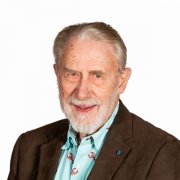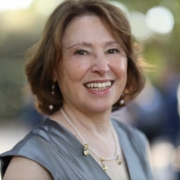PARIS Test Uses Lab-Grown Mini-Tumors to Find a Patient’s Best Treatment

Curious Dr. George Cancer Commons Editor in Chief George Lundberg, MD, is the face and curator of this invitation-only column

Carla Grandori, MD, PhD
Founder and CEO of SEngine Precision Medicine
The U.S. Food and Drug Administration (FDA) has approved hundreds of drugs for the treatment of cancer. However, some approved drugs are more effective for certain patients than others. Our curious Dr. George asks Carla Grandori, MD, PhD, Founder and CEO of SEngine Precision Medicine, about her company’s test to detect which drugs are likely to be most effective for a given patient’s solid tumor.
Curious Dr. George: Too often, the FDA approves drugs that are not effective, and there is a serious lag from the beginning of their use until discovery that the drug is without benefit. For solid tumors, your company’s PARIS Test purports to detect which drugs will not work and which are likely to be effective. How exactly does it work? How might a physician and a patient access it?
Carla Grandori, MD, PhD: As physicians and patients unfortunately know firsthand, cancer treatment usually means a series of therapies over the course of years. Often a patient doesn’t respond to a course of treatment; sometimes they do, but disease later recurs anyway. It can feel like trial-and-error, with time slipping away and frightening degrees of uncertainty.
The concept of personalized medicine has generated a lot of excitement within the cancer community, with the implication that there has to be a way to figure out the best course of treatment for each individual. The field has made notable progress in certain cases, but most efforts are looking to define new buckets for patient cohorts, like carriers of a specific mutation. The DNA approach can find a therapeutic match for only 17% of patients’ DNA. That’s important, but how about the remaining 83% of patients? Also, often a patient’s cancer has multiple mutations—which one is actionable, and when? What about the many factors behind disease progression and the unique genetic background of each patient, all so complex to translate into therapies?
This leads to the most heartbreaking consideration: what if the best treatments for a specific patient sat ready in a pharmacy, but no one realized they were right? That’s what inspired us to create the PARIS Test, named for the warrior from Greek mythology who defeated his rival by finding the weakness in Achilles’ heel.
Our concept is to derive tumor organoids from a patient, so they reflect the actual characteristics of that individual’s disease, then use them to screen an array of potential therapies from our library of cancer drugs.
The way it works is, a patient or their care team shares some basic information with our CLIA-certified lab in Seattle, WA, so we can prepare instructions for an oncologist to collect appropriate biopsies (ideally four in total), surgical excision (~1 cm3), or body fluid ( more than 250 ml). Once we’ve received the sample, we use it to grow the 3D organoids, and leverage robotics to quickly screen hundreds of cancer drugs and combinations. Data produced from this process is analyzed through our informatics pipeline and combined with DNA sequencing for context, to produce an actionable report for oncologists with treatment recommendations and the rationale behind those choices. These reports get delivered to doctors in two to six weeks, and studies have shown their strong predictive power—more than 70% of patients’ clinical responses match the PARIS Test results.
Sometimes, the report confirms that the standard of care is the best way forward. But often we discover new options that can change a person’s life. One example we’re very proud of was summarized in a recently published case study for a patient we encountered who was in rapid decline and in hospice after failing standard-of-care treatments for her low-grade serous ovarian cancer (LGSOC). The PARIS Test identified the best course as a series of therapies that were approved as targeted lymphoma or lung cancer treatments, with little or no clinical evidence that anyone had even tried them in LGSOC. Through this personalized and targeted course of treatment, her symptoms reversed and she has experienced several years of stable disease.
Having now learned from hundreds of PARIS Test results from different patients, the most encouraging findings are that cancers, despite their chemoresistance, will still harbor unique sensitivities to very specific targeted treatments. Often, these unique cancer Achille’s heels are not obviously predicted from just DNA or RNA testing. These results and the many patients who have benefited from the PARIS Test indicate much hope for cancer patients—and the more medicines we will have, the higher the chance of finding a match for every patient’s cancer.
Dr. Grandori can be reached at cgrandori@senginemedicine.com.
***
Copyright: This is an open-access article distributed under the terms of the Creative Commons Attribution License, which permits unrestricted use, distribution, and reproduction in any medium, provided the original author and source are credited.



